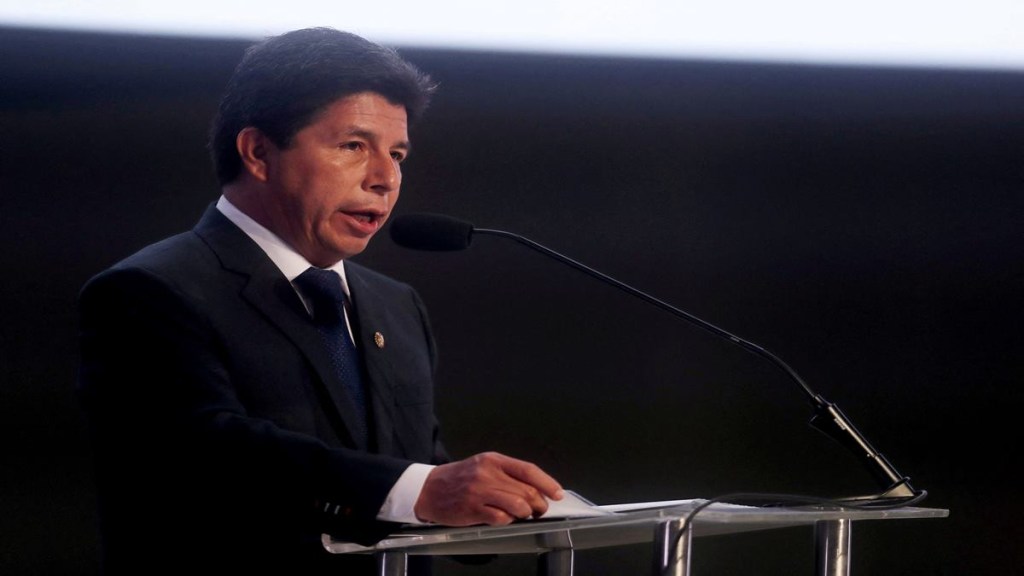Dr Aparaajita Pandey
Latin America has had its fair share of ebbs and flows in the recent past and it seems that the trend is going to continue into the next year. There is a paucity of foundations for stability that are overwhelmingly apparent, therefore, an expectation for great political or economic rebuilding is farfetched to say the least. While the scholars of Latin America have had differing opinions on whether or not there seems to be a pink tide in the region, a phenomenon far less debatable has been the consensus that the upcoming election super cycle that would begin in 2023 is showing indications of change in political preferences yet again.
Also Read: Peru declares state of emergency, seeks 18-months jail for Pedro Castillo
The year has ended with Pedro Castillo, former President of Peru being ousted, and the next year shall begin with the former President Luiz Ignacio Lula da Silva being sworn in to become the president yet again for Brazil. While Presidents are being forced away and welcomed, the need for change among the people remains constant. In the past election super cycle, consecutively 15 national elections have showcased anti-incumbency as a prominent trend during national elections. As the faith of the people in their political representatives’ wanes further, this trend shows signs of continuation. While the trend of anti-incumbency is set to persevere; it is not indicative of the assiduity of the voters’ infatuation with a particular genre of politics. It would not be far from the truth to understand that possible voter migration from the left of the spectrum to the right of the political spectrum would have less to do with their preference of a certain kind of politics and much more with a continued disappointment in the unfulfilled promises of their elected representatives. It is this lack of faith in the politics and politicians in most of Latin America that would be one of the prominent characteristics of politics in the region.
Perhaps some of the most stable regimes in the region would be the ones that are of an authoritarian nature. El Salvador, Honduras, and Venezuela, both would continue with their current political conditions, and they would both prevail over the same context ; which is the lack of political opposition. Both the Salvadorianas and Venezuelans have the same issue; that they are yet to find people that could stand up to their current Heads of State who can also be trusted for their intentions and/or their backgrounds.
Also Read: Latin America and Caribbean countries look towards India for trade diversification, experts urge dialogue
The projections for economies are not too optimistic either, however, this is a mere reflection of the global economic slowdown. The imminent global recession is sure to impact the markets and economies of the Latin American nations as well. It has been estimated that the region’s growth rate would fall to 1.73 % by the IMF. While the economic slowdown in the region is just mirroring the global economic slowdown; it would influence the approval rating of the political representatives across the region. Notwithstanding, the aforementioned, it is important to note that nations like Guyana and Suriname are set to grow economically since they have found reserves of crude oil and natural gas and are set to become major global suppliers of crude oil and natural gas.
While political and economic instability might be dominating Latin America in 2023, the coming of Lula would also mean the greater presence of Brazil specifically and the entire region in general when it comes to global politics. While Jair Bolsonaro concentrated on keeping Brazil out of global affairs and global affairs out of Brazil; Lula has an image of a regional leader as well as a leader of the third world in addition to being a beloved president.
It can be expected that with BRICS, IBSA, and G-20; Brazil is going to be front and center in global meetings and would represent the needs of the entire Latin America and not just Brazil. The focus would be on south – south cooperation as well as international efforts towards combating environmental degradation and global warming. It is also a possibility that Brazil would attempt to host the COP in 2025.
It can be speculated that there would be greater engagement of the region with China. Argentina has already become a member of the One Belt One Road initiative and there are indications that Brazil would become a member too. This would also lead to the US showing a greater interest in the region, specifically in the Central American region.
As Latin America moves towards a decade long Maduro regime, it is going to be a hotbed for the competition between China and the US, while the people endeavour to find a Head of State who can change their lives for the better.
Author is an independent political analyst and has a PhD in Latin American Studies from Centre for Canadian, US, and Latin American Studies, Jawaharlal Nehru University.
Disclaimer: Views expressed are personal and do not reflect the official position or policy of Financial Express Online. Reproducing this content without permission is prohibited.
